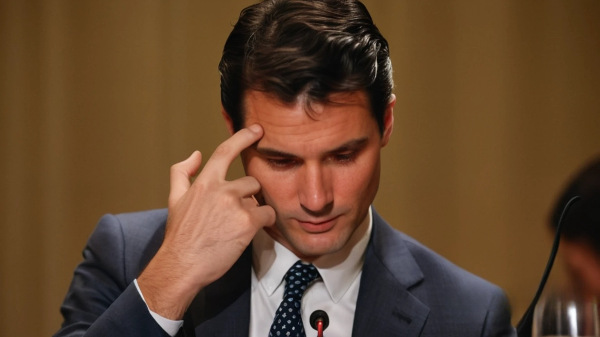Iran’s Plan to Strike Back Against the U.S.
Iran’s Military Preparations Following U.S. Attacks
Loading...

In his message marking the Day of Remembrance for the Victims of Terrorism, the Canadian Prime Minister avoided even mentioning the pro-Khalistani separatism that led to the worst terrorist bombing in Canadian history.
Canadian Prime Minister Justin Trudeau did not directly condemn or mention pro-Khalistan terrorism in his statement on the 39th anniversary of the Air India flight Kanishka bombing.
The Canadian prime minister mourned the victims of the Air India bombing and said Ottawa is doing its part to combat terrorism and violent extremism.
Trudeau asserted that the attack is a reminder of the "senseless violence" perpetuated by terrorism and our "shared responsibility to condemn terrorism unequally."
He cited a number of counter-terrorism measures recently announced by his administration, including an updated federal "Counter-Terrorism Strategy" and a community support initiative.
"Through the Community Resilience Fund, we are providing funding to organizations that can help us better understand violent extremism and prevent these violent acts. And earlier this week, we announced the designation of the Islamic Revolutionary Guard Corps (IRGC) as a terrorist organization under the Canadian Criminal Code," the prime minister said. Meanwhile, Trudeau's speech made no mention of the Khalistan separatist group, which committed the country's worst bombing in history.
India: "Canada condones glorifying terrorism"
India's top diplomat in Canada, Sanjay Kumar Verma, led a commemorative ceremony in Ottawa to mark the 39th anniversary of the Kanishka bombing. Families of the victims, Canadian officials and the Indian diaspora attended the ceremony. "No government in the world should ignore the threat of terrorism emanating from its territory for political reasons. Human lives are far more important than momentary political gains. All terrorist activities should be countered with exemplary legal and social measures before they harm humanity at large," Verma said.
The Indian Consulate General also held meetings in Vancouver and Toronto to pay tribute to the victims of the Kanishka bombing.
Meanwhile, a press statement from the Indian High Commission said "Canada-based Khalistani terrorists" were directly responsible for the deadly incident.
It was found that "the perpetrators and conspirators of this heinous act" are still at large. The Indian mission said terrorism "has reached a level that constitutes an existential threat to international peace and security," adding that countering this threat requires a joint response from the international community.
"Any act of glorifying terrorism, including the AI-182 bombing in 1985, is deplorable and should be condemned by all peace-loving nations and peoples. It is unfortunate that such acts are becoming commonplace in Canada," it stressed.
On June 23, 1985, Air India Flight 182, operating on the Montreal-London-New Delhi route, was bombed in the air by pro-Khalistan terrorists, killing all 329 people on board. Meanwhile, on Sunday, p. Indian External Affairs Minister Jaishankar also paid tribute to the victims of the bombing, saying in a social media post that "this anniversary is a reminder why terrorism must never be tolerated."
Iran’s Military Preparations Following U.S. Attacks
Troops remain in five strategic locations, raising fears of renewed tensions and long-term occupation.
Opposition forces have taken control of the capital after a significant offensive. Here is how it unravelled.
